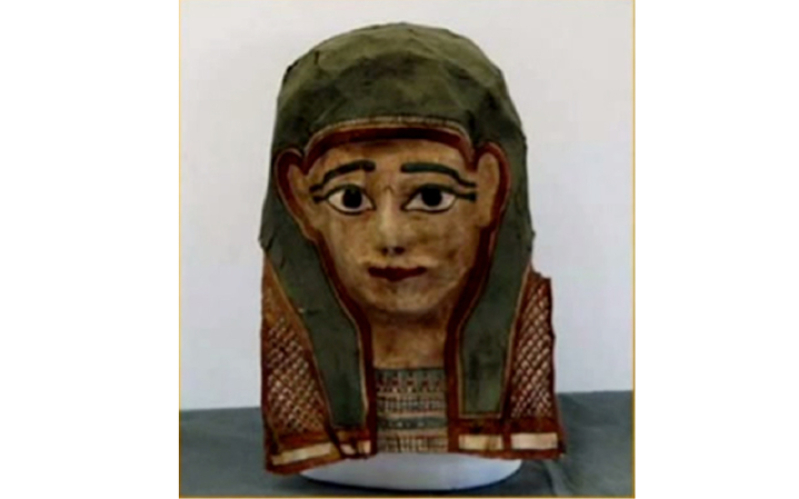
When scientists uncovered what is believed to be the earliest known fragment of Biblical scripture in an Egyptian mummy's mask three years ago, they may have found the first New Testament manuscript from the first century.
While the text of the papyrus writing is set to be published later this year by E.J. Brill, the topic re-emerged as national news this week when Dr. Craig Evans, professor of New Testament Studies at Nova Scotia's Acadia Divinity College, gave a presentation on the method of recovery that has allowed researchers to discover these ancient papyrus manuscripts.
"We're recovering ancient documents from the first, second and third centuries," Dr. Evans told Live Science in a recent interview. "Not just Christian documents, not just biblical documents, but classical Greek texts, business papers, various mundane papers, personal letters." These documents are said to even include ancient copies of stories written by the Greek poet Homer.
As Dr. Evans explains it, technology has allowed scientists to remove the glue from these early Egyptian masks in order to more accurately read the papyrus that was used to create the masks. While the mummies of Egyptian pharaohs and the high class were typically made of gold, normal citizens used papyrus or linen for their own mummy coverings. To help alleviate costs even further, many Egyptians recycled papyrus that was already used for other writings.
While Evans is not the one who discovered or is even working on uncovering the text, he commented to Live Science that the information written in the manuscript is under a nondisclosure agreement that was broken when one member of the team leaked information back in 2012.
When word got out that the researchers believed this text to be from the New Testament, many wanted proof of the dating method. Evans describes a bit more about this in the video of his presentation from last summer, including the use of handwriting analysis, Carbon-14 dating, and even the content of the writing itself.
But you may be wondering how Mark's gospel, written in Rome, could have reached Egypt at such an early age. We reached out to Dr. Evans to get some clarification on the timeline.
"In the Roman Empire mail moved almost as quickly as it does today," he told The Gospel Herald. "A letter put aboard a packet in Ephesus (today's Turkey) could be in Egypt within one week. Something written in Rome could be in Egypt being read within a few weeks. Mark was written in the late 60s, so finding a copy of Mark in Egypt dating to the 80s is not strange in the least."
But the first century A.D. is usually a black hole of information in regards to the scope of evangelism in Egypt at that time. Dr. Evans explains that a combination of enhanced literacy during that period and the perfect environmental conditions allow us to discover more about what was essentially considered waste at the time. "The ancient world was far more literate than we moderns realize," he said. "Some 500,000 pages of papyrus have been recovered from Oxyrhynchus alone and it was not an especially important or cultured city. We have this enormous amount of material simply because the arid climate made preservation possible. There would have been millions of documents in other cities like Ephesus, Alexandria, Rome, Rhodes, and the like."
While the text is set to be published later this year, Evans says that it was originally set to be revealed in 2013 or 2014. The delay is thought to be caused by continued research by the team into the first-century scripture's meaning.
"The benefit of the delay is that when it comes out, there will be additional information about it and other related texts," he said.






